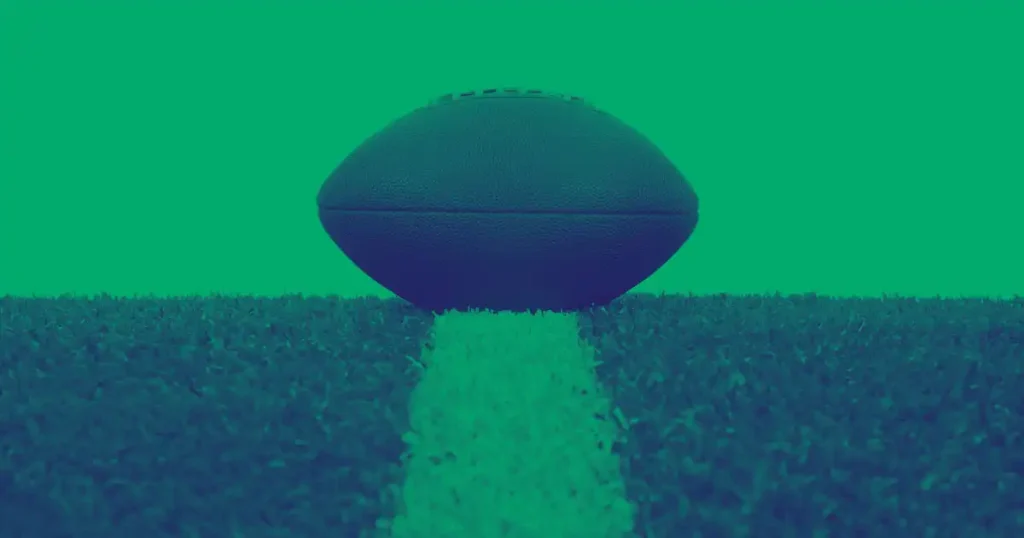Betting on the NFL can be both thrilling and profitable, but it also comes with risks. One way to mitigate these risks and protect your potential winnings is by hedging bets. Hedging is a strategy that allows you to minimize losses and secure profits by placing additional bets.
In this article, we’ll explore what hedging bets are, how they work, and when you should consider using them in your NFL betting strategy.
What is Hedging in Betting?
Definition of Hedging
Hedging in betting involves placing a secondary bet that is opposite to your original wager. This strategy is used to reduce potential losses or guarantee a profit regardless of the outcome. Hedging can be particularly useful in scenarios where the outcome of a game becomes uncertain.
How Hedging Works
When you place a hedge bet, you are essentially betting against your initial wager. For example, if you bet on Team A to win but want to secure some profit or minimize loss as the game progresses, you can place a bet on Team B. This way, you cover multiple outcomes, reducing your overall risk.
Benefits of Hedging Bets
Risk Management
The primary benefit of hedging bets is risk management. By placing a hedge bet, you can limit potential losses on your initial wager. This is especially helpful when the game outcome becomes less certain than anticipated.
Securing Profits
Hedging can also help in securing profits. If your initial bet is performing well, hedging allows you to lock in a guaranteed profit, regardless of the final result. This strategy ensures you come out ahead no matter what happens.
Peace of Mind
Knowing that you have a hedge bet in place can provide peace of mind. It reduces the stress and anxiety associated with potential losses, allowing you to enjoy the game more.
When to Use Hedging Bets
Pre-Game Hedging
You can consider pre-game hedging if you have placed a futures bet or if you feel uncertain about your initial wager closer to game time. This strategy helps you manage risk before the game even starts.
In-Game Hedging
In-game hedging (live betting) is another effective approach. As the game unfolds and you get a better sense of the teams’ performances, you can place a hedge bet to cover your initial wager. This allows you to react to the game’s dynamics in real-time.
Playoff and High-Stakes Games
Hedging is particularly useful during playoff and high-stakes games. These games often have more unpredictable outcomes, making it wise to secure profits or minimize losses through hedging.
Long-Term Bets
If you have placed long-term bets, such as season-long futures, hedging can help you manage risk as the season progresses. This is especially important if the teams or players you bet on are performing inconsistently.
How to Hedge Bets in the NFL
Calculate Potential Outcomes
Before placing a hedge bet, calculate the potential outcomes. Determine how much you need to bet on the opposite outcome to cover your initial wager or secure a profit. Use betting calculators to assist with these calculations.
Choose the Right Time
Timing is crucial when hedging bets. Monitor the game’s progress and place your hedge bet when you feel the risk is highest or when you can lock in a favorable outcome. In live betting, this often means waiting until the second half or the final quarter.
Manage Your Bankroll
Effective bankroll management is essential for successful hedging. Ensure you have enough funds to place hedge bets without overextending yourself. Set aside a portion of your bankroll specifically for hedging purposes.
Use Multiple Sportsbooks
Having accounts with multiple sportsbooks can provide better odds and more hedging opportunities. Different sportsbooks may offer varying odds on the same event, allowing you to find the best value for your hedge bets.
Common Mistakes to Avoid
Over-Hedging
Over-hedging can lead to reduced profits or even losses. Avoid placing too many hedge bets that eat into your potential winnings. Balance your bets carefully to maximize your returns.
Hedging Too Early
Placing hedge bets too early can be counterproductive. Wait until you have a clearer picture of the game’s dynamics or the season’s progress before hedging. This strategy ensures that you are making informed decisions.
Ignoring Costs
Consider the costs associated with hedging, such as reduced payouts and additional betting fees. Ensure that your hedge bets are financially viable and won’t negate the benefits of hedging.
Hedging bets in the NFL is a valuable strategy for managing risks and securing profits. By understanding what hedging is, how it works, and when to use it, you can enhance your betting strategy and enjoy a more rewarding betting experience.
Remember to calculate potential outcomes, choose the right time to hedge, manage your bankroll effectively, and avoid common mistakes. With these tips, you’ll be well-equipped to navigate the complexities of NFL betting and maximize your returns.
FAQs
What is hedging in betting?
Hedging in betting involves placing a secondary bet that is opposite to your original wager to reduce potential losses or guarantee a profit regardless of the outcome.
How does hedging work in NFL betting?
In NFL betting, hedging works by placing a bet against your initial wager. For example, if you bet on one team to win, you can hedge by betting on the opposing team to cover multiple outcomes and reduce risk.
When should I use hedging bets?
You should consider using hedging bets during pre-game, in-game, playoff and high-stakes games, and for long-term bets to manage risk and secure profits.
What are the benefits of hedging bets?
The benefits of hedging bets include risk management, securing profits, and providing peace of mind by reducing the stress associated with potential losses.
How do I calculate potential outcomes for hedging?
To calculate potential outcomes for hedging, determine how much you need to bet on the opposite outcome to cover your initial wager or secure a profit. Use betting calculators to assist with these calculations.
What are common mistakes to avoid when hedging bets?
Common mistakes to avoid when hedging bets include over-hedging, hedging too early, and ignoring the costs associated with hedging, such as reduced payouts and additional betting fees.


































